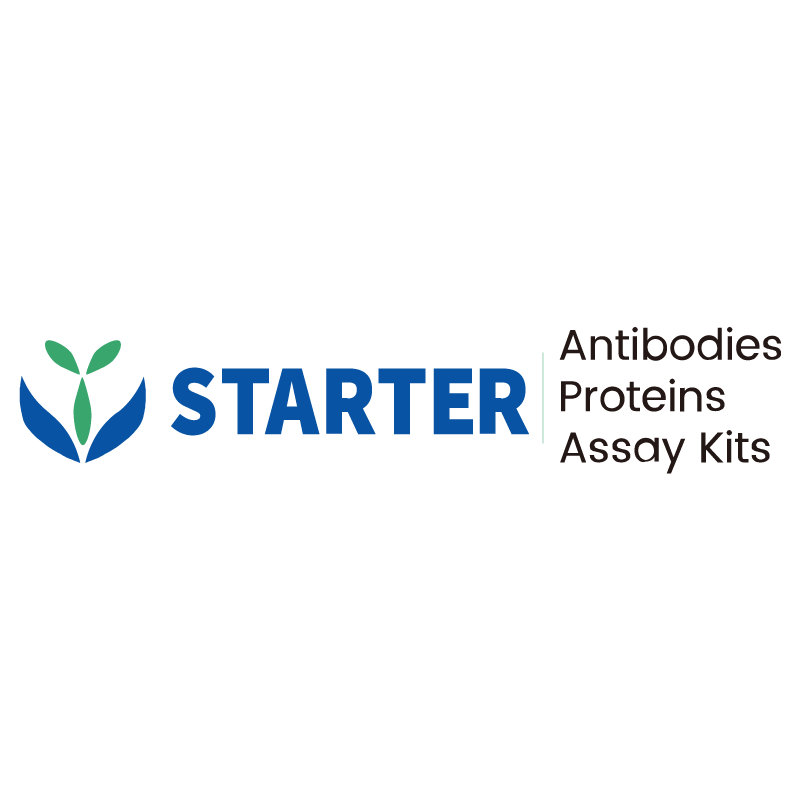Flow cytometric analysis of 4% PFA fixed 0.1% Tween-20 permeabilized RAW 264.7 (Mouse Abelson murine leukemia virus-induced tumor macrophage), treated 6h with 100ng/ml LPS and the last 3h with 300ng/ml BFA (Red) or untreated (Green), labeling TNF α at 1/2000 dilution (0.1 μg) compared with a Rat monoclonal IgG isotype control (Black) and an unlabeled control (cells without incubation with primary antibody and secondary antibody) (Blue). Goat Anti - Rat IgG Alexa Fluor® 488 was used as the secondary antibody.
Product Details
Product Details
Product Specification
| Host | Rat |
| Antigen | TNF alpha |
| Synonyms | Tumor necrosis factor; Cachectin; TNF-alpha; Tumor necrosis factor ligand superfamily member 2 (TNF-a); Tnfa; Tnfsf2; Tnf |
| Location | Secreted, Cell membrane |
| Accession | P06804 |
| Clone Number | S-R604 |
| Antibody Type | Rat mAb |
| Isotype | IgG1,k |
| Application | ICFCM |
| Reactivity | Ms |
| Purification | Protein G |
| Concentration | 2 mg/ml |
| Conjugation | Unconjugated |
| Physical Appearance | Liquid |
| Storage Buffer | PBS pH7.4 |
| Stability & Storage | 12 months from date of receipt / reconstitution, 2 to 8 °C as supplied |
Dilution
| application | dilution | species |
| ICFCM | 1:2000 | Ms |
Background
Tumor necrosis factor alpha (TNF alpha) is a multifunctional cytokine that plays a crucial role in regulating immune responses and inflammation. It is primarily produced by macrophages, but can also be synthesized by other cell types including monocytes, neutrophils, and T cells. TNF alpha exerts its effects by binding to two distinct receptors, TNF receptor 1 (TNFR1) and TNF receptor 2 (TNFR2), which are widely expressed on various cell types. It is involved in a wide range of biological processes such as promoting inflammation, inducing apoptosis, and stimulating cell proliferation and differentiation. In the context of immune response, TNF alpha helps to activate immune cells and enhance their ability to combat infections and cancer cells. However, excessive or uncontrolled production of TNF alpha can lead to chronic inflammatory diseases like rheumatoid arthritis, inflammatory bowel disease, and psoriasis. Therefore, TNF alpha is a key target for therapeutic interventions aimed at modulating the immune system and treating inflammatory disorders.
Picture
Picture
FC


